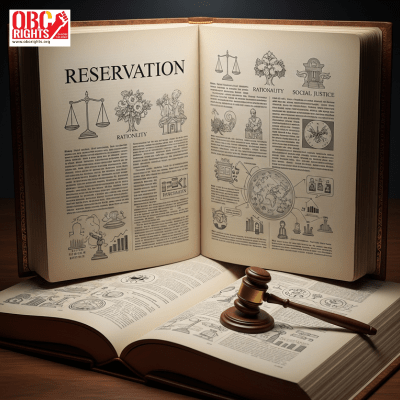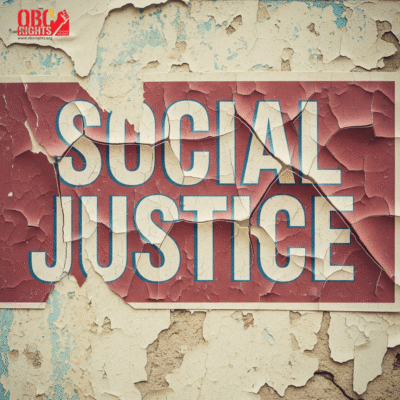- Does Social Justice Prevail now?
- Have OBCs been given the rights guaranteed in the Constitution of India?
- Can the Ninth Schedule Protect reservations for backward classes forever?
In a country built on centuries of inequality, reservation for backward classes have been the single most transformative social policy. Yet, every few years, this very foundation of equality faces new questions, new court cases, and new challenges. As movements rise demanding that OBC reservation and reservation for backward classes be placed under the Ninth Schedule of the Constitution, one must ask — is this a political strategy or a social necessity?
1. The Constitutional Armour for Social Justice
The Ninth Schedule, introduced in 1951, was never a loophole — it was a shield. It was created through the First Amendment to protect progressive laws, such as land reforms, from being struck down by courts under the guise of “fundamental rights”. Later, states began adding reservation laws into it, recognising that social equality cannot survive under constant legal uncertainty.
For example:
- Tamil Nadu’s 69% reservation law (1994) is protected under the Ninth Schedule.
- It ensures 50% for Backward Classes and Most Backward Classes together, 18% for SCs, and 1% for STs.
- Despite the Supreme Court’s 50% ceiling rule in Indra Sawhney (1992), Tamil Nadu’s law remains valid — because it rests inside the Ninth Schedule.
This is not a constitutional manipulation. It is a recognition that social justice is not arithmetic — it is historical correction.
2. Why States Demand Ninth Schedule Protection?
Across India, the call to include OBC reservation in the Ninth Schedule grows stronger. The reasons are clear and deeply structural:
- Judicial Uncertainty: Every few years, the 50% limit is questioned or reinforced, putting many state laws in danger.
- Changing Political Winds: A government today may expand reservations; another tomorrow may dilute it.
- Unequal Representation: Despite decades of reservation, OBCs still remain underrepresented in higher education, elite services, and the judiciary.
- Social Mobility Gap: Data from the India Human Development Survey shows that upper-caste dominance in government jobs and professional sectors still exceeds 70%, while OBC participation stagnates at 21–24%.
- Article 14 – The Principle of equality also poses a threat to the Reservation
In this context, reservation for backward classes cannot be left to the mercy of political seasons. It requires a permanent constitutional seatbelt — and that is the Ninth Schedule.
3. The Data Reality — Why Protection Is Needed?
Many critics argue that reservations have gone “too far”. But the numbers say otherwise.
- According to the All India Survey on Higher Education (AISHE 2023), OBC students form only 36% of enrolments in higher education, despite being over 52% of India’s population (as per the Mandal Commission and NSSO 2011–12 data).
- In Group A central government services, OBC representation stands at only 16.6% (as of 2023) — far below their demographic share.
- The judiciary and media, two of the most influential sectors, have almost negligible OBC presence.
If equality is still a distant dream, why should legal protection for reservations be temporary?
The Ninth Schedule is not about politics; it is about shielding justice until equality becomes natural.

4. The Constitutional Logic for Expansion:
The argument for expanding and protecting the OBC reservation under the Ninth Schedule is not against the Constitution; it is in tune with it.
- The Preamble of our Constitution upholds the goal of ensuring justice in every form, social, economic, and political.
- The Directive Principles (Articles 38, 46) direct the State to promote the welfare of the weaker sections.
- And the Constitutional framers, from Ambedkar to Nehru, saw reservation as a tool of inclusion, not division.
If land reforms could be protected through the Ninth Schedule in the 1950s to remove economic inequality, then protecting reservation for backward classes today is the modern continuation of that same struggle, against educational, social, and occupational inequality.
In a democratic republic, protection of privilege cannot outweigh protection of justice.
5. Judicial Precedent and Balance:
Critics often cite the I.R. Coelho (2007) judgment, where the Supreme Court ruled that laws in the Ninth Schedule are still open to review if they violate the Basic Structure of the Constitution.
But this does not invalidate reservation laws — it only ensures that they serve equality and do not destroy it.
Reservation for backward classes directly promotes substantive equality, which is part of the basic structure itself.
Thus, inclusion in the Ninth Schedule strengthens, not weakens, the spirit of the Constitution.
The Future of Equality Lies in Security
The struggle for OBC reservation and reservation for backward classes is not a demand for privilege; it is a demand for equal ground.
The Ninth Schedule is not a political escape route – it is a constitutional necessity in a country where centuries of exclusion cannot be undone in a few decades.
As India grows economically, it must also grow justly.
The real danger to democracy is not expanding reservation – it is forgetting why it exists.
If the Constitution can protect property once, it must protect equality now – and that is what the Ninth Schedule can, and must, do.



